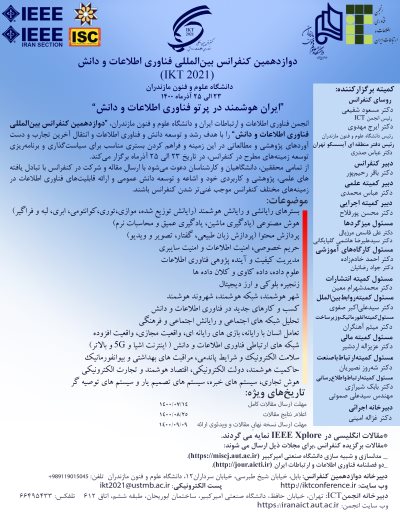0% Complete

نویسندگان :
کلمات کلیدی :
چکیده :
لیست مقالات بایگانی شده
مریم مولی وردیخانی - دکتر سعید جلیلی مریم مولی وردیخانی - سعید جلیلی -
Kevin Lano - Shekoufeh Kolahdouz Rahimi
Rasool TayebMoghadam - Amirhossein Damia - Hadi Bahrampoor - Maryam Zarghani
Hadi Rezaeikarjani - Mojtaba Valinataj
پیمان گرجی - سید محمدباقر جعفری
Kooroush Manochehri - Amir arsalan Sakhtianchi - Mehrshad Khosraviani
Narges Honarjoo - Ali Abdari - Dr Azadeh Mansouri
محمد عباسی - مریم حسینی پزوه - محمدرضا شمس
ُSomayeh Sohrabi - Koorush Ziarati - Morteza Keshtkaran
Ayoub Parvizi - Dr Mohammad Kazemifard - Ziba Imani




